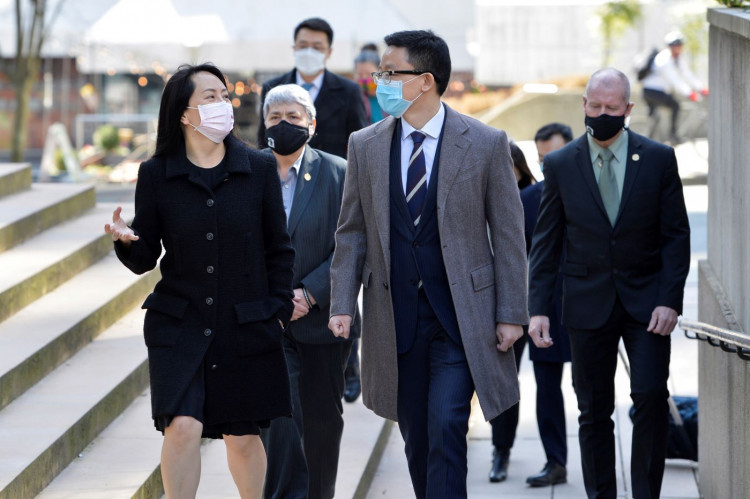Canadian prosecutors have asked the judge in Huawei CFO Meng Wanzhou's extradition case to deny the Chinese business leader's request for an extradition delay due to documents that Meng's legal team requested.
Prosecutors Want No More Delays in Two-Year Case
While Meng's legal team made the request so they can review documents from HSBC Bank that could be turned into evidence for the case, prosecutors are not convinced.
Top lawyer for the Canadian Department of Justice, Robert Frater said that Meng's lawyers are "asking once again to have this court turn into a trial."
In a letter, prosecutors have urged Associate Chief Justice Heather Holmes to deny the request. They said there was "no basis" for the delay request.
Meng's defense asked the Supreme Court of British Columbia to postpone proceedings until August while they wait for documents from the bank as they said they are not sure when the files will arrive.
A lawyer for Meng, Richard Peck, said the HSBC documents "could be of great value to the final decision in this case." The documents in question were ordered to be released by a Hong Kong court.
Will the Documents be Relevant to the Case?
For the defense, the documents from Hong Kong HSBC could "include evidence" that the United States mislead the court and Canadian authorities in the country's request for Meng's extradition.
On the other hand, the prosecution believes that the request is "the latest in a series of attempts" in delaying trial that should be taking place in United States soil.
The documents are believed to have key elements in determining the true relationship between HSBC, Huawei, and Skycom.
Skycom is accused of being used by Huawei to do business in Iran.
On U.S. Jurisdiction over Meng's Alleged Crimes
With critical documents coming through, it is expected that more questions will be raised by Meng's legal team on whether the United States had "jurisdictional overreach" in the Huawei chief financial officer's extradition case.
According to the defense, the alleged crimes against Meng occurred in Hong Kong and had no direct relations to the U.S. The defense added that should Canada allow Meng to get extradited to the U.S., international law will be violated.
Gib van Ert, a lawyer for Meng's defense, said Meng's actions in a team room in Hong Kong did not harm the U.S. or had any "connection to the U.S. at all."
For the Canadian prosecution, countries have the right to prosecute crimes that were committed anywhere in the world if the crimes have an impact on the prosecuting nation.
It remains to be seen whether the documents agreed for release by HSBC will have an impact on the defense's arguments on U.S. jurisdiction in Meng's case.
Key Events in Meng Case from 2018 - 2020
August 22, 2018: New York court issues arrest warrant for Meng
December 1, 2018: Vancouver police arrest Meng
December 5, 2018: Chinese officials question Meng's arrest
December 10, 2018: Canadians Michael Kovrig and Michael Spavor are arrested in China on espionage charges
March 1, 2019: Canada approves Meng's extradition order to the U.S.
January 2020: Meng's extradition hearing officially begins
July 27, 2020: Defense requests for more documents related to the case
November 16, 2020: Witness cross examination on Meng's initial interrogation





